American Poetry : The Twentieth Century, Volume 1 : Henry Adams to Dorothy Parker 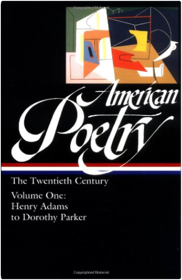
Weighing in at nearly 1,000 pages, Volume One is the work of Robert Hass, John Hollander, Carolyn Kizer, Nathaniel Mackey, and Marjorie Perloff. This poetic Gang of Five has made a number of decisions that will delight some readers and rankle others. For instance, they've elected to include song lyrics from the likes of W.C. Handy, Ma Rainey, Irving Berlin, and Cole Porter. (Doubtless these remain diminished without the music—but who could be so churlish as to exclude the tongue-twisting couplets from "Anything Goes"?) They've also thrown in a variety of very minor works by very major writers, such as "Terminus," Edith Wharton's breathless account of her one-night stand with boy toy Morton Fullerton.
But these are truly peccadilloes. There are hundreds of poems here, representing more than 80 authors, and thumbing through the selections by Marianne Moore or Robinson Jeffers or James Weldon Johnson or Robert Frost should be enough to send most readers into linguistic rapture. Lesser figures, from Sara Teasdale to H.P. Lovecraft, get their days in the sun. So too do complete obscurities like George Sterling or Elsa von Freytag-Loringhoven (whose capsule biography suggests that she may have been the most unhappy of a notoriously unhappy lot). Poetry lovers are free to argue themselves hoarse over who got the short end of the stick—and indeed, the relatively small slice of the pie allotted to T.S. Eliot says a great deal about the transience of literary reputation. But anthologies are by their very nature imperfect, and it's hard to imagine a more welcome, less imperfect one than this. —James MarcusAmerican Poetry : The Twentieth Century, Volume 2 : E.E. Cummings to May Swenson 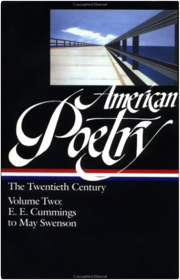 Harlem Renaissance Novels: the Library of America Collection: John Steinbeck : Novels and Stories, 1932-1937 : The Pastures of Heaven / To a God Unknown / Tortilla Flat / In Dubious Battle / Of Mice and Men (Library of America 72) John Steinbeck: The Grapes of Wrath and Other Writings 1936-1941: The Grapes of Wrath, The Harvest Gypsies, The Long Valley, The Log from the Sea of Cortez (Library of America 86) Steinbeck Novels 1942-1952: The Moon Is Down / Cannery Row / The Pearl / East of Eden Sherwood Anderson: Collected Stories: Winesburg, Ohio / The Triumph of the Egg / Horses and Men / Death in the Woods / Uncollected Stories Sherwood Anderson, Charles BaxterIn the winter of 1912, Sherwood Anderson (1876–1941) abruptly left his office and spent three days wandering through the Ohio countryside, a victim of “nervous exhaustion.” Over the next few years, abandoning his family and his business, he resolved to become a writer. Novels and poetry followed, but it was with the story collection Winesburg, Ohio that he found his ideal form, remaking the American short story for the modern era. Hart Crane, one of the first to recognize Anderson’s genius, quickly hailed his accomplishment: “America should read this book on her knees.” Here––for the first time in a single volume––are all the collections Anderson published during his lifetime: Winesburg, Ohio (1919), The Triumph of the Egg (1921), Horses and Men (1923), and Death in the Woods (1933), along with a generous selection of stories left uncollected or unpublished at his death. Exploring the hidden recesses of small town life, these haunting, understated, often sexually frank stories pivot on seemingly quiet moments when lives change, futures are recast, and pasts come to reckon. They transformed the tone of American storytelling, inspiring writers like Hemingway, Faulkner, and Mailer, and defining a tradition of midwestern fiction that includes Charles Baxter, editor of this volume.John Ashbery: Collected Poems, 1956-1987 John Ashbery, Mark FordWith this volume, The Library of America inaugurates a collected edition of the works of America?s preeminent living poet. Beginning with Some Trees in 1956, John Ashbery has charted a profoundly original and individual course that has opened up pathways for subsequent generations of poets. At once hermetic and exuberantly curious, meditative and unnervingly funny, dreamlike and steeped in everyday realities, and alive to every nuance of American speech, these are poems that constantly discover new worlds within language. This first volume of the collected Ashbery includes the complete texts of his first twelve books, including such groundbreaking collections as Rivers and Mountains, Three Poems, Self-Portrait in a Convex Mirror (which won the Pulitzer Prize, the National Book Award, and the National Book Critics Circle Award in 1975), and Houseboat Days. It also features an unprecedented gathering of more than sixty previously uncollected poems written over a period of four decades, a rare treasure trove for poetry lovers. This volume is a landmark portrait of a modern master.James Baldwin : Collected Essays : Notes of a Native Son / Nobody Knows My Name / The Fire Next Time / No Name in the Street / The Devil Finds Work / Other Essays James Baldwin, Toni Morrison"Collected Essays" is the most comprehensive gathering of Baldwin's nonfiction ever published. The collection confirms his as a uniquely prophetic voice in American letters. Included are such famous essays as "The Harlem Ghetto", "Everybody's Protest Novel", Many Thousands Gone", and "Stranger in the Village" .James Baldwin: Early Novels and Stories: Go Tell It on a Mountain / Giovanni's Room / Another Country / Going to Meet the Man James BaldwinWith burning passion, the authority of experience, and a sharp, epigrammatic wit, these essays articulate issues of race, democracy, and American identity. This edition—the most comprehensive gathering of Baldwin's nonfiction ever published—presents the complete texts of the landmark collections "Notes of a Native Son" (1955) and "Nobody Knows My Name" (1961); "The Fire Next Time" (1963), a classic analysis of America's racial divide; "No Name in the Street" (1972); and "The Devil Finds Work" (1976); and 36 more essays, including nine never before collected.James Baldwin: Later Novels: Tell Me How Long the Train's Been Gone / If Beale Street Could Talk / Just Above My Head: James Baldwin, Darryl PinckneyThe Library of America completes its edition of the collected fiction of the literary voice of the Civil Rights era with this volume gathering three revealing later works of the 1960s and ’70s. With such landmark novels as Go Tell It on the Mountain, Giovanni’s Room, and the essay collections Notes of a Native Son and The Fire Next Time, James Baldwin established himself as the indispensable voice of the Civil Rights era, a figure whose prophetic exploration of the racial and sexual fissures in American society raised the consciousness of American readers. But by the late 1960s and ’70s many regarded Baldwin as being out of sync with the political and social currents transforming America: too integrationist for Black Arts Movement writers and others on the Left, yet too “pessimistic” for many white readers, and as a result his later novels have never received the consideration given his earlier fiction. Sober in outlook but ambitious in scope, these works show Baldwin responding with his signature passion—for music, for justice, for life—and searching intelligence to the new realities of a rapidly changing cultural landscape, as the Movement era gives way to the age of identity politics that we still live in today. This culminating volume in the Library of America edition of his fiction illustrates how Baldwin continues to be relevant in twenty-first-century America, especially in his dramatizing of the unequal treatment of black men by the police and the justice system, his nuanced depictions of the black family, and his explorations of sexuality.Donald Barthelme: Collected Stories (LOA #343) Donald BarthelmeBellow: Novels 1970-1982: Mr. Sammler's Planet / Humboldt's Gift / The Dean's December Saul Bellow, James WoodSaul Bellow: Novels 1944-1953: Dangling Man, The Victim, and The Adventures of Augie March Saul Bellow, James WoodSaul Bellow's rare talent has not only earned critical accolades, including the Nobel Prize, it has also made his books perennial bestsellers. Now, in a historic collector's edition celebrating the 50th anniversary of the classic The Adventures of Augie March, readers will rediscover the novels that laid the foundation for Bellow's towering career.
The comic tour-de-force The Adventures of Augie March (1953) introduced to American literature a startlingly original expressiveness-uninhibited, jazzy, infused with Yiddishisms and Depression-era voices. Ebullient irony bears Bellow's prose aloft. March comes of age in a Chicago bustling with characters as large and vital as the city itself, and his travels abroad lead him through love's byways and the disappointments of vanishing youth. Martin Amis calls it "the Great American Novel" for its "fantastic inclusiveness, its pluralism, its qualmless promiscuity. . . . Everything is in here."
Bellow's sparer first two novels possess a more Flaubertian precision. Dangling Man (1944) penetrates the psychology of a jobless man's anxiousness as he awaits draft orders. The Victim (1947), an increasingly nightmarish story of one man's extraordinary claims on a casual acquaintance, explores our obligations to others and the unfathomable workings of chance. After a half century, Bellow's earliest novels remain as fresh, incisive, and entertaining as ever. Included in this edition are helpful notes and a chronology of the author's life.Saul Bellow: Novels 1956-1964: Seize the Day, Henderson the Rain King, Herzog Saul Bellow, James WoodSaul Bellow: Novels 1984-2000 Saul BellowPeanuts Papers : Writers and Cartoonists on Charlie Brown, Snoopy and the Gang, and the Meaning of Life. Andrew BlaunerThe American Canon: Literary Genius from Emerson to Pynchon Harold Bloom, David MikicsOur foremost literary critic celebrates the American pantheon of great writers from Emerson and Whitman to Hurston and Ellison, to Ursula K. LeGuin, Philip Roth, and Thomas Pynchon.
Harold Bloom is our greatest living student of literature, "a colossus among critics" (The New York Times) and a "master entertainer" (Newsweek). Over the course of a remarkable career spanning more than half a century, in such best-selling books as The Western Canon and Shakespeare: The Invention of the Human, he transformed the way we look at the masterworks of western literature. Now, in the first collection devoted to his illuminating writings specifically on American literature, Bloom reflects on the surprising ways American writers have influenced each other across more than two centuries. The American Canon gathers five decades of Bloom's essays, occasional pieces, and introductions as well as excerpts from several of his books, weaving them together into an unrivalled tour of the great American bookshelf. Always a champion of aesthetic power, Bloom tells the story of our national literature in terms of artistic struggle against powerful predecessors and the American thirst for selfhood. All of the visionary American writers who have long preoccupied Bloom—Emerson and Whitman, Hawthorne and Melville, and Dickinson, Faulkner, Crane, Frost, Stevens, and Bishop—are here, along with Hemingway, James, O'Connor, Ellison, Hurston, LeGuin, Ashbery and many others. Bloom's enthusiasm for these American geniuses is contagious, and he reminds us how these writers have shaped our sense of who we are, and how they can summon us to be yet better versions of ourselves.American Religious Poems: An Anthology by Harold Bloom Harold BloomNo more profound and intimate expression of America's spiritual life can be found than the work of its poets. From Anne Bradstreet to the Beats, from Native American chant and Shaker hymnody to Walt Whitman and Emily Dickinson, religion and spirituality have always been central to American poetry. In this unique anthology, world-renowned scholar Harold Bloom weaves a tapestry from the many strands of American religious experience and practice: the searching meditations of Puritan pioneers, the evangelical fervor of the Great Awakenings, the mystical currents of Transcendentalism, the diverse influences of the world religions that have taken root in modern America.
Spanning four centuries and more than 200 poets, American Religious Poems is a bountiful and moving gathering of voices that offers countless moments of inspiration, solace, meditation, and transcendence. The poems in this unprecedented volume are a lasting testimony to the American spirit and its unremitting quest for ultimate truth and meaning.
This deluxe collector's edition features:
- an introduction by Harold Bloom
- a reader's guide to significant topics and themes in the poems
- Smyth-sewn binding and flexible, leatherette covers
- and a ribbon page-markerW.E.B. Du Bois : Writings : The Suppression of the African Slave-Trade / The Souls of Black Folk / Dusk of Dawn / Essays and Articles W. E. B. Du BoisThe Ray Bradbury Collection: A Library of America Boxed Set Ray BradburyHart Crane: Complete Poems and Selected Letters Hart Crane, Langdon HammerNo American poet has so swiftly and decisively transformed the course of poetry as Hart Crane. In his haunted, brief life, Crane fashioned a distinctively modern idiom that fused the ornate rhetoric of the Elizabethans, the ecstatic enigmas of Rimbaud, and the prophetic utterances and cosmic sympathy of Whitman, in a quest for wholeness and healing in what he called "the broken world." White Buildings, perhaps the greatest debut volume in American poetry since Leaves of Grass, is but an exquisite prelude to Crane's masterpiece The Bridge, his magnificent evocation of America from Columbus to the Jazz Age that countered the pessimism of Eliot's The Waste Land and became a crucial influence on poets whose impact continues to this day.
This edition is the largest collection of Crane's writings ever published. Gathered here are the complete poems and published prose, along with a generous selection of Crane's letters, several of which have never before been published. In his letters Crane elucidates his aims as an artist and provides fascinating glosses on his poetry. His voluminous correspondence also offers an intriguing glimpse into his complicated personality, as well as his tempestuous relationships with family, lovers, and writers such as Allen Tate, Waldo Frank, Yvor Winters, Jean Toomer, Marianne Moore, E. E. Cummings, William Carlos Williams, and Katherine Anne Porter. Several letters included here are published for the first time.
This landmark 850-page volume features a detailed and freshly-researched chronology of Crane's life by editor Langdon Hammer, chair of the English Department at Yale University and a biographer of Crane, as well as extensive explanatory notes, and over fifty biographical sketches of Crane's correspondents.Prose and Poetry: Maggie, A Girl of the Streets / The Red Badge of Courage / Stories, Sketches and Journalism / The Black Riders and War is Kind Stephen CraneDon DeLillo: Three Novels of the 1980s DeLillo, DonDon DeLillo: Three Novels of the 1980s Don DeLilloJoan Didion: Memoirs & Later Writings Joan DidionJoan Didion: The 1960s & 70s Joan DidionJoan Didion: The 1980s & 90s Joan DidionW.E.B. Du Bois: Black Reconstruction Du Bois, W.E.B.Emerson: Essays and Lectures: Nature: Addresses and Lectures / Essays: First and Second Series / Representative Men / English Traits / The Conduct of Life Ralph Waldo EmersonThe major works of Emerson's most productive period in their entirety: "Nature: Addresses and Lectures," "Essays: First and Second Series," "Representative Men," "English Traits," and "The Conduct of Life."William Faulkner : Novels 1930-1935 : As I Lay Dying, Sanctuary, Light in August, Pylon William Faulkner, Joseph Blotner, Noel PolkBetween 1930 and 1935, William Faulkner came into full possession of the genius and creativity that made him America's greatest writer of the twentieth century. "As I Lay Dying" is a dark comedy, full of horror and compassion, of a rural Mississippi family bearing the corpse of their matriarch to burial in town. "Sanctuary," a violent novel of sex and social class that moves from Mississippi back roads to the flesh-pots of Memphis, features a sadistic gangster named Popeye and a debutante with an affinity for evil. "Light in August," a near-religious vision of the hopeful stubbornness of ordinary life, is perhaps Faulkner's most moving work. "Pylon," a tale of barnstorming aviators, examines the bonds of loyalty and desire among three men and a woman. All are presented in restored texts as part of The Library of America's new, authoritative edition of Faulker's complete works.William Faulkner : Novels 1936-1940 : Absalom, Absalom! / The Unvanquished / If I Forget Thee, Jerusalem / The Hamlet William Faulkner, Joseph Blotner, Noel PolkThese four novels show one of America's greatest writers at the height of his powers. Presented in authoritative new texts, they explore the struggles of characters in a South caught between a romantic and a tragic past and the corrupting enticements of the present. Quentin Compson and his Harvard roomate re-create the story of the insanely ambitious patriarch Thomas Sutpen—and discover that his grief, pride, and doom are the inescapable legacy of a past that is not dead. "The Unvanquished" recounts the ordeals and triumphs of the Sartoris family during and after the Civil War. In "If I Forget Thee, Jerusalem" (first published as "The Wild Palms"), paired stories tell of desperate lovers and a fleeing convict. In "The Hamlet," the outrageous scheming energy of Flem Snopes and his clan is vividly and hilariously juxtaposed with the fragile community and customs of Frenchman's bend, Mississippi.William Faulkner : Novels 1942-1954 : Go Down, Moses / Intruder in the Dust / Requiem for a Nun / A Fable William Faulkner, Joseph Blotner, Noel PolkThe years 1942 to 1954 saw Faulkner's greatest success—and greatest inner anguish. Plagued by depression and alcohol, he knew he had more to achieve and a finite amount of time and energy to achieve it. This volume gathers four groundbreaking works from this fascinating period. "Go Down, Moses" is a haunting novel that explores the intertwined lives of black, white, and Indian inhabitants of Yoknapatawpha County. It includes "The Bear," one of the most famous works in American fiction. "Intruder in the Dust," a detective novel, is a compassionate story of a black man on trial and the growing moral awareness of a southern white boy. "Requiem for a Nun" tells the fate of a passionate, haunted Temple Drake and her tortured redemption. "A Fable," Faulkner's recasting of the Christ story set in World War I, earned him the Pulitzer Prize.William Faulkner: Novels 1926-1929: Soldiers' Pay / Mosquitoes / Flags in the Dust / The Sound and the Fury William Faulkner, Noel Polk, Joseph BlotnerThe Library of America edition of the novels of William Faulkner culminates with this volume presenting his first four, each newly edited, and, in many cases, restored with passages that were altered or (in the case of Mosquitoes) expurgated by the original publishers. This is Faulkner as he was meant to be read.
In these four novels we can track Faulkner's extraordinary evolution as, over the course of a few years, he discovers and masters the mode and matter of his greatest works. Soldiers' Pay (1926) expresses the disillusionment provoked by World War I through its account of the postwar experiences of homecoming soldiers, including a severely wounded R.A.F. pilot, in a style of restless experimentation. In Mosquitoes (1927), a raucous satire of artistic poseurs, many of them modeled after acquaintances of Faulkner in New Orleans, he continues to try out a range of stylistic approaches as he chronicles an ill-fated cruise on Lake Pontchartrain.
With the sprawling Flags in the Dust (published in truncated form in 1929 as Sartoris), Faulkner began his exploration of the mythical region of Mississippi that was to provide the setting for most of his subsequent fiction. Drawing on family history from the Civil War and after, and establishing many characters who recur in his later books, Flags in the Dust marks the crucial turning point in Faulkner's evolution as a novelist.
The volume concludes with Faulkner's masterpiece, The Sound and the Fury (1929). This multilayered telling of the decline of the Compson clan over three generations, with its complex mix of narrative voices and its poignant sense of isolation and suffering within a family, is one of the most stunningly original American novels.
The editors of this volume are Joseph Blotner and Noel Polk. Joseph Blotner, who wrote the notes, is professor of English emeritus at the University of Michigan. Biographer of William Faulkner and Robert Penn Warren, he is a member of the Fellowship of Southern Writers and the French Legion of Honor. Noel Polk is professor of English at Mississippi State University and editor of The Mississippi Quarterly. He has edited the texts in all five volumes of William Faulkner's novels for The Library of America.
In his first four novels, William Faulkner moved beyond early experiments to discover the themes and style of his maturity. With Soldiers' Pay, a sardonic distillation of postwar disillusionment, and Mosquitoes, a freewheeling roman à clef satirizing the writers and artists of his New Orleans milieu, Faulkner served his restless apprenticeship as a writer of fiction before settling in Flags in the Dust (first published in truncated form as Sartoris) on the material that would chiefly engage him: a mythic Mississippi region dense with ancestral memories and echoes of the Civil War. The volume concludes with what many consider Faulkner's greatest work, The Sound and the Fury, a novel of family torment whose audacities of form and fearless explorations of the inner life continue to astonish. The newly edited texts in this volume include passages altered or in some cases expurgated by the original publishers.William Faulkner: Novels, 1957-1962: The Town / The Mansion / The Reivers William Faulkner, Noel PolkWilliam Faulkner's fictional chronicle of Yoknapatawpha County culminates in his three last novels, rich with the history and lore of the domain where he set most of his novels and stories. "The Town" (1957), the second novel of the Snopes trilogy that began with "The Hamlet," charts the rise of the rapacious Flem Snopes and his extravagantly extended family as they connive their way into power. In "The Mansion" (1959), the trilogy's conclusion, a wronged relative finally destroys Flem and his dynasty. Faulkner's last novel, "The Reivers: A Reminiscence" (1962), distinctly mellower and more elegiac than his earlier work, is a picaresque adventure that evokes the world of childhood with a final burst of comic energy. "Novels 1957-1962," like previous volumes in The Library of America's edition of the complete novels of William Faulkner, has been newly edited by textual scholar Noel Polk to establish an authoritative text, that features a chronology and notes by Fau! lkner's biographer Joseph Blotner.William Faulkner: Stories William FaulknerRobert Frost: Collected Poems, Prose, and Plays Robert Frost, Richard Poirier, Mark RichardsonA scholarly, annotated, and uniquely comprehensive edition gathers all of Frost's major poetry, a selection of previously unanthologized poems, and the most extensive offering of his prose writings ever published, along with an essay on the texts by the editors.Ulysses S. Grant : Memoirs and Selected Letters : Personal Memoirs of U.S. Grant / Selected Letters, 1839-1865 Ulysses S. Grant, Mary D. McFeely, William S. McFeelyTwenty years after Appomattox, stricken by cancer and facing financial ruin, Ulysses S. Grant wrote his Personal Memoirs to secure his family’s future. in doing so, the Civil War’s greatest general won himself a unique place in American letters. His character, intelligence, sense of purpose, and simple compassion are evident throughout this vivid and deeply moving account, which has been acclaimed by readers as diverse asMark Twain, Matthew Arnold, Gertrude Stein, and Edmund Wilson. Annotated and complete with detailed maps, battle plans, and facsimiles reproduced from the original edition, this volume offers an unparalleled vantage on the most terrible, moving, and inexhaustibly fascinating event in American history. included are 174 letters, many of them to his wife, Julia, which offer an intimate view of their affectionate and enduring marriage.
LIBRARY OF AMERICA is an independent nonprofit cultural organization founded in 1979 to preserve our nation’s literary heritage by publishing, and keeping permanently in print, America’s best and most significant writing. The Library of America series includes more than 300 volumes to date, authoritative editions that average 1,000 pages in length, feature cloth covers, sewn bindings, and ribbon markers, and are printed on premium acid-free paper that will last for centuries.Ursula K. Le Guin: Five Novels Ursula K. Le GuinUrsula K. Le Guin: The Hainish Novels and Stories: A Library of America Boxed Set Ursula K. Le GuinThe Essential Gwendolyn Brooks Gwendolyn Brooks, Elizabeth Alexander, Gwendolyn BrooksNathaniel Hawthorne : Collected Novels: Fanshawe, The Scarlet Letter, The House of the Seven Gables, The Blithedale Romance, The Marble Faun Nathaniel HawthorneHere in one volume are all five of Nathaniel Hawthorne's world-famous novels. Written in a richly suggestive style that seems remarkably contemporary, they are permeated by America's and Hawthorne's own history. "The House of the Seven Gables" moves across 150 years from an ancestral crime condoned by the Puritan theocracy to a new beginning in the bustling and democratic Jacksonian era. Hawthorne's masterpiece, "The Scarlet Letter," is a dramatic allegory of the social consequences of adultery and the subversive force of personal desire in a community of laws. "The Blithedale Romance" explores the perils, which Hawthorne knew at first hand, of living in a utopian community, and the inextricability of political, personal, and sexual desires. "Fanshawe" is an engrossing apprentice work which Hawthorne published anonymously and later sought to suppress. "The Marble Faun," his last finished novel, involves mystery, murder, and romance among American artists in Rome.O. Henry: 101 Stories O. HenryZora Neale Hurston : Novels and Stories : Jonah's Gourd Vine / Their Eyes Were Watching God / Moses, Man of the Mountain / Seraph on the Suwanee / Selected Stories Zora Neale Hurston, Cheryl WallWhen she died in obscurity in 1960, all her books were out of print. Now, Zora Neale Hurston is recognized as one of the most important and influential modern American writers. This volume, with its companion, "Zora Neale Hurston: Folklore, Memoirs, and Other Writings," brings together for the first time all of Hurston's best works in one authoritative set. It features the acclaimed 1937 novel "Their Eyes Were Watching God," a lyrical masterpiece about a woman's struggle for love and independence. "Jonah's Gourd Vine," based on the story of Hurston's parents, details the rise and fall of a preacher torn between spirit and flesh. "Moses, Man of the Mountain" is a high-spirited retelling of the Exodus story in black vernacular. "Seraph on the Suwanee" portrays the passionate clash between a poor southern "cracker" and her willful husband. A selection of short stories further displays Hurston's unique fusion of folk traditions and literary modernism—comic, ironic, and soaringly poetic.Henry James: Autobiographies: A Small Boy and Others / Notes of a Son and Brother / The Middle Years / Other Writings: Library of America #274 Henry James, Philip HorneThe most extensive collection of Henry James's autobiographical writings ever published offers a revelatory self-portrait from one of America's supreme novelists and his famous family. In 1911, deeply affected by the death of his brother William the year before, Henry James began working on a book about his early life. As was customary for James in his later years, he dictated his recollections to his secretary Theodora Bosanquet, who recalled how “a straight dive into the past brought to the surface treasure after treasure.” A Small Boy and Others (1913) and the two autobiographical books that followed—Notes of a Son and Brother (1914) and the incomplete, posthumously published The Middle Years—stand with his later novels as one of the enduring triumphs of his final years. Not only did James create one of the singular self-portraits in American literature, he also fashioned a richly detailed account of his renowned family, especially his father, the social philosopher Henry James Sr., his brother William, and his dear cousin Minny Temple, inspiration for the heroines of two of his greatest novels, The Portrait of a Lady and The Wings of the Dove.
Rounding out the volume is a selection of eight other personal reminiscences and, as an appendix, his secretary’s insightful and affectionate memoir, “Henry James at Work.”William James : Writings 1902-1910 : The Varieties of Religious Experience / Pragmatism / A Pluralistic Universe / The Meaning of Truth / Some Problems of Philosophy / Essays William JamesThomas Jefferson : Writings : Autobiography / Notes on the State of Virginia / Public and Private Papers / Addresses / Letters Thomas Jefferson, Merrill D. PetersonThe most comprehensive one-volume selection of Jefferson ever published. Contains the "Autobiography," "Notes on the State of Virginia," public and private papers, including the original and revised drafts of the Declaration of Independence, addresses, and 287 letters.
LIBRARY OF AMERICA is an independent nonprofit cultural organization founded in 1979 to preserve our nation’s literary heritage by publishing, and keeping permanently in print, America’s best and most significant writing. The Library of America series includes more than 300 volumes to date, authoritative editions that average 1,000 pages in length, feature cloth covers, sewn bindings, and ribbon markers, and are printed on premium acid-free paper that will last for centuries.The Age of Movies: Selected Writings of Pauline Kael Pauline Kael"Film criticism is exciting just because there is no formula to apply," Pauline Kael once observed, "just because you must use everything you are and everything you know." Between 1968 and 1991, as regular film reviewer for The New Yorker, Kael used those formidable tools to shape the tastes of a generation, enthralling readers with her gift for capturing, with force and fluency, the essence of an actor's gesture or the full implication of a cinematic image. Kael called movies "the most total and encompassing art form we have," and she made her reviews a platform for considering both film and the worlds it engages, crafting in the process a prose style of extraordinary wit, precision, and improvisatory grace. To read The Age of Movies, the first new selection in more than a generation, is to be swept up into an endlessly revealing and entertaining dialogue with Kael at her witty, exhilarating, and opinionated best. Her ability to evoke the essence of a great artist-an Orson Welles or a Robert Altman-or to celebrate the way even seeming trash could tap deeply into our emotions was matched by her unwavering eye for the scams and self-deceptions of a corrupt movie industry. Here in this career spanning collection are her appraisals of the films that defined an era-among them Breathless, Bonnie and Clyde, The Leopard, The Godfather, Last Tango in Paris, Nashville-along with many others, some awaiting rediscovery, all providing the occasion for masterpieces of observation and insight, alive on every page.Jack Kerouac: Road Novels 1957-1960: On the Road / The Dharma Bums / The Subterraneans / Tristessa / Lonesome Traveler / Journal Selections Jack Kerouac, Douglas BrinkleyThe raucous, exuberant, often wildly funny account of a journey through America and Mexico, Jack Kerouac's On the Road instantly defined a generation upon its publication in 1957: it was, in the words of a New York Times reviewer, "the clearest and most important utterance yet made by the generation Kerouac himself named years ago as 'beat.'" Written in the mode of ecstatic improvisation that Allen Ginsberg described as "spontaneous bop prosody," Kerouac's novel remains electrifying in its thirst for experience and its defiant rebuke of American conformity.
In his portrayal of the fervent relationship between the writer Sal Paradise and his outrageous, exasperating, and inimitable friend Dean Moriarty, Kerouac created one of the great friendships in American literature; and his rendering of the cities and highways and wildernesses that his characters restlessly explore are a hallucinatory travelogue of a nation he both mourns and celebrates. Now, to celebrate the fiftieth anniversary of Kerouac's landmark novel, The Library of America collects On the Road together with four other autobiographical "road books" published in the late 1950s and early 1960s.
The Dharma Bums (1958), at once an exploration of Buddhist spirituality and an account of the Bay Area poetry scene, is notable for its thinly veiled portraits of Kerouac's acquaintances, including Ginsberg, Gary Snyder, and Kenneth Rexroth. The Subterraneans (1958) recounts a love affair set amid the bars and bohemian haunts of San Francisco. Tristessa (1960) is a melancholy novella describing a relationship with a prostitute in Mexico City. Lonesome Traveler (1960) collects travel essays that evoke journeys in Mexico and Europe, and concludes with an elegiac lament for the lost world of the American hobo. Also included in Road Novels are selections from Kerouac's journal, which provide a fascinating perspective on his early impressions of material eventually incorporated into On the Road.Arrowsmith, Elmer Gantry, Dodsworth Sinclair LewisWritten at the height of his powers in the 1920s, the three novels in this volume continue the vigorous unmasking of American middle-class life begun by Sinclair Lewis in Main Street and Babbitt. In Arrowsmith (1925) Lewis portrays the medical career of Martin Arrowsmith, a physician who finds his commitment to the ideals of his profession tested by the cynicism and opportunism he encounters in private practice, public health work, and scientific research. The novel reaches its climax as its hero faces his greatest challenges amid a deadly outbreak of plague on a Caribbean island.
Elmer Gantry (1927) aroused intense controversy with its brutal depiction of a hypocritical preacher in relentless pursuit of worldly pleasure and power. Through his satiric exposé of American religion, Lewis captured the growing cultural and political tension in the 1920s between the forces of secularism and fundamentalism.
Dodsworth (1929) follows Sam Dodsworth, a wealthy, retired Midwestern automobile manufacturer, as he travels through Europe with his increasingly restless wife, Fran. The novel intimately explores the unraveling of their marriage, while pitting the proud heritage of European culture against the rude vigor of American commercialism.Lincoln : Speeches and Writings : 1859-1865 Abraham LincolnAbraham Lincoln was the greatest writer of the Civil War as well as its greatest political leader. His clear, beautiful, and at times uncompromisingly severe language forever shaped the nation’s
understanding of its most terrible conflict. This volume, along with its companion, Abraham Lincoln: Speeches and Writings 1832–1858, comprises the most comprehensive selection ever published. Over 550 speeches, messages, proclamations, letters, and other writings—including the Inaugural and Gettysburg addresses and the moving condolence letter to Mrs. Bixby—record the words and deeds with which Lincoln defended, preserved, and redefined the Union.
LIBRARY OF AMERICA is an independent nonprofit cultural organization founded in 1979 to preserve our nation’s literary heritage by publishing, and keeping permanently in print, America’s best and most significant writing. The Library of America series includes more than 300 volumes to date, authoritative editions that average 1,000 pages in length, feature cloth covers, sewn bindings, and ribbon markers, and are printed on premium acid-free paper that will last for centuries.Lincoln: Speeches and Writings 1832-1858 Abraham Lincoln, Don E. FehrenbacherAbraham Lincoln measured the promise—and cost—of American freedom in lucid and extraordinarily moving prose, famous for its native wit, simple dignity of expressions, and peculiarly American flavor. This volume, with its companion, Abraham Lincoln: Speeches and Writing 1859–1865, comprises the most comprehensive selection ever published. over 240 speeches, letters, and drafts take Lincoln from rural law practice to national prominence, and chart his emergence as an eloquent antislavery advocate and defender of the constitution. included are the complete Lincoln-Douglas debates, perhaps the most famous confrontation in American political history.
LIBRARY OF AMERICA is an independent nonprofit cultural organization founded in 1979 to preserve our nation’s literary heritage by publishing, and keeping permanently in print, America’s best and most significant writing. The Library of America series includes more than 300 volumes to date, authoritative editions that average 1,000 pages in length, feature cloth covers, sewn bindings, and ribbon markers, and are printed on premium acid-free paper that will last for centuries.Jack London : Novels and Stories : Call of the Wild / White Fang / The Sea-Wolf / Klondike and Other Stories Jack LondonThe library of America is dedicated to publishing America's best and most significant writing in handsome, enduring volumes, featuring authoritative texts. Hailed as the "finest-looking, longest-lasting editions ever made" (The New Republic), Library of America volumes make a fine gift for any occasion. Now, with exactly one hundred volumes to choose from, there is a perfect gift for everyone.The People of the Abyss / The Road / The Iron Heel / Martin Eden / John Barleycorn Jack LondonThe library of America is dedicated to publishing America's best and most significant writing in handsome, enduring volumes, featuring authoritative texts. Hailed as the "finest-looking, longest-lasting editions ever made" (The New Republic), Library of America volumes make a fine gift for any occasion. Now, with exactly one hundred volumes to choose from, there is a perfect gift for everyone.Bernard Malamud: Novels & Stories of the 1940s & 50s Bernard MalamudBernard Malamud: Novels & Stories of the 1960s Bernard MalamudBernard Malamud: Novels and Stories of the 1970s & 80s Bernard MalamudWilliam Maxwell: Early Novels and Stories William Maxwell, Christopher CarduffChristopher Carduff, editor
In 1934, at age 26, William Maxwell left small-town Illinois for New York City, convinced that life and literature were elsewhere. "I had no idea then," he later wrote, "that three-quarters of the material I would need for the rest of my writing life was already at my disposal. My father and mother. My brothers. The look of things. The Natural History of home . . . All there, waiting for me to learn my trade and recognize instinctively what would make a story." With his second book, They Came Like Swallows (1937), Maxwell found his signature subject matter-the fragility of human happiness-as well as his voice, a quiet, cadenced Midwestern voice that John Updike has called one of the wisest and kindest in American Þction. Set against the background of the Spanish ßu epidemic of 1918, this short novel presents the loving character of Elizabeth Morison, a devoted wife and mother, through the eyes of those whom she is fated to leave decades before her time. Edmund Wilson described The Folded Leaf (1945) as "a quite unconventional study of adolescent relationships-between two boys, with a girl in the ofÞng-in Chicago and in a Middle Western college: very much lived and very much seen." He praised this "drama of the immature" for the compassion Maxwell brings to his male protagonists, whose intensely felt, unarticulated bond is beyond their inchoate ability to understand. Time Will Darken It (1948) is a drama of the mature: a good man's struggle to keep duty before desire and his family's needs before his own. It paints a portrait of Draperville, Illinois, in 1912, a proud and isolated community governed by gossip, where an ambitious young woman must not overreach the limits society has placed on her sex, and an older, married gentleman must not encourage her should she dare.
Together with these major works, this Library of America edition of Maxwell's early Þction collects his lighthearted Þrst novel, Bright Center of Heaven (1934), out of print for nearly 70 years, and nine masterly short stories. It concludes with "The Writer as Illusionist" (1955), Maxwell's fullest statement on the art of Þction as he practiced it.Carson McCullers: Stories, Plays & Other Writings Carson McCullers, Carlos L. DewsCelebrated worldwide for her masterly novels, Carson McCullers was equally accomplished, and equally moving, when writing in shorter forms. This Library of America volume brings together for the first time her twenty extraordinary stories, along with plays, essays, memoirs, and poems. Here are the indelible tales “Madame Zilensky and the King of Finland” and “A Tree. A Rock. A Cloud.” as well as her previously uncollected story about the civil rights movement, “The March”; her award- winning Broadway play The Member of the Wedding and the unpublished teleplay The Sojourner; twenty-two essays; and the revealing unfinished memoir Illumination and Night Glare. This wide-ranging gathering of shorter works reveals new depths and dimensions of the writer whom V. S. Pritchett praised for her “courageous imagination—one that is bold enough to consider the terrible in human nature without loss of nerve, calm, dignity, or love.”The Heart is a Lonely Hunter/Reflections in a Golden Eye/The Ballad of the Sad Cafe/The Member of the Wedding/The Clock Without Hands (Library of America) Carson McCullersNabokov: Novels 1955-1962: Lolita / Pnin / Pale Fire Vladimir NabokovThe second in Library of America's three-volume collection of Vladimir Nabokov's novels, Novels 1955-1962 contains his most acclaimed and popular works. The short, often anthologized Pnin is included, as is Pale Fire, Nabokov's most elaborate fictional joke: it's a novel masquerading as a 999-line poem accompanied by a professorial pedant's extensive annotations. But this deluxe volume is most valuable for its inclusion of Lolita alongside the screenplay that Nabokov wrote for Stanley Kubrick. Kubrick's film is quite different from the version Nabokov intended, and Novels 1955-1962 offers the opportunity to compare Lolita's two Nabokovian incarnations with Kubrick's film and with the recent, very controversial movie directed by Adrian Lyne and starring Jeremy Irons.Nabokov: Novels, 1969-1974 Vladimir Nabokov, Brian BoydVladimir Nabokov : Novels and Memoirs 1941-1951 : The Real Life of Sebastian Knight, Bend Sinister, Speak, Memory Vladimir Nabokov, Brian BoydAfter a brilliant literary career in Russian, Vladimir Nabokov came to the United States and went on to an even more brilliant one in English—earning a place as one of the greatest writers of his adopted home. Between 1941 and 1974 he published the autobiography and eight novels now collected by The Library of America in an authoritative three-volume set. "The Real Life of Sebastian Knight" is a tantalizing literary mystery in which a writer's half brother searches to unravel the enigma of the famous novelist's life. "Bend Sinister," Nabokov's most explicitly political novel, is the haunting, dreamlike story of a quiet philosophy professor caught up in the bureaucratic terror of a totalitarian police state. "Speak, Memory" is the dazzling memoir of Nabokov's childhood in imperial Russia amd exile in Europe. The texts in this volume have been corrected based on the author's own copies. Two companion volumes collect "Lolita," "Pnin," "Pale Fire," and "Lolita: A Screenplay," and "Ada," "Transparent Things," and "Look at the Harlequins!"Flannery O'Connor : Collected Works : Wise Blood / A Good Man Is Hard to Find / The Violent Bear It Away / Everything that Rises Must Converge / Essays & Letters Flannery O'ConnorFlannery O'Connor, a unique and important figure in the Southern literary tradition, was one of the finest writers of the twentieth century. This volume, containing her two novels, short stories, essays and letters, is the only complete collection of her works.The Collected Breece D'J Pancake: Stories, Fragments, Letters Breece D'J PancakePaul Bowles: Collected Stories & Later Writings (Library of America 135) Paul, BowlesTheodore Roethke: Selected Poems : Selected Poems (American Poets Project) Theodore RoethkePhilip Roth: Nemeses: Everyman / Indignation / The Humbling / Nemesis Philip Roth, Ross MillerWhat kind of choices fatally shape a life? How does the individual withstand the onslaught of circumstance? These are the dark questions that animate Nemeses, the quartet of thematically related short novels that are published here together for the first time in this final volume of The Library of America’s definitive edition of Philip Roth’s collected works. Everyman (2006) is the sparse and affecting story of one man’s lifelong skirmish with mortality. Set against the backdrop of the Korean War, Indignation (2008) is the extraordinary narrative of a young man struggling against the conformity of McCarthy-era America and his father’s overwhelming fear. In The Humbling (2009), aging actor Simon Axler embarks on a risky and aberrant affair in a desperate attempt to recoup his lost artistic gifts. And in Nemesis (2010), Roth offers an exacting portrait of the emotions—fear and anger, bewilderment and grief—bred by a polio epidemic in Newark in the summer of 1944. Philip Roth is the only living American novelist to have his work published in a comprehensive, definitive edition by The Library of America. He has received the Pulitzer Prize, the National Book Award and the National Book Critics Circle Award twice, the PEN/Faulkner Award three times, the National Medal of Arts, and the Gold Medal in Fiction, the highest award of the American Academy of Arts and Letters.Philip Roth: Novels 1967-1972: When She Was Good / Portnoy's Complaint / Our Gang / The Breast Philip Roth, Ross MillerFor the last half century, the novels of Philip Roth have re-energized American fiction and redefined its possibilities. Roth's comic genius, his imaginative daring, his courage in exploring uncomfortable truths, and his assaults on political, cultural, and sexual orthodoxies have made him one of the essential writers of our time. By special arrangement with the author, The Library of America now inaugurates the definitive edition of Roth's collected works. This second volume presents four extraordinarily diverse works displaying the range and originality of his fictional art.
When She Was Good (1967) is the trenchant portrait of Lucy Nelson, a young midwestern woman whose perception of her own suffering turns her into a ferocious force, "enemy-ridden and unforgivingly defiant," as Roth would later describe her. A small-town 1940s America of restrictive social pressures and foreclosed opportunities provides the novel's background.
The publication of the hilarious Portnoy's Complaint (1969) was a cultural event that turned Roth into a reluctant celebrity. The confession of a bewildered psychoanalytic patient thrust through life by his unappeasable sexuality yet held back by the iron grip of his unforgettable childhood, Portnoy unleashed Roth's comic virtuosity and opened new avenues for American fiction.
In Our Gang (1971), described by Anthony Burgess as a "brilliant satire in the real Swift tradition," Roth effects a savage takedown of the administration of Richard Nixon (who figures here as Trick E. Dixon). Written before the revelations of the Watergate scandal, Our Gang continues to resonate as a broad and outraged response to the clownish hypocrisy and moral theatrics of the American political scene.
The Kafkaesque excursion The Breast (1972) introduces David Kepesh in the first volume of a trilogy that continues with The Professor of Desire (1977) and The Dying Animal (2001). The Breast prompted Cynthia Ozick to remark, "One knows when one is reading something that will permanently enter the culture."Philip Roth: Novels 1973-1977, The Great American Novel, My Life as a Man, The Professor of Desire Philip RothThis third volume in The Library of America's definitive edition of Philip Roth's collected works presents three markedly different novels that together trace a crucial period in the bold evolution of one of America's indispensable novelists. Surely the funniest novel ever written about baseball, The Great American Novel (1973) turns our national pastime into unfettered picaresque farce. The cast of improbable characters includes: Gil Gamesh, the pitcher who actually tried to kill the umpire; John Baal, the ex-con first baseman, "The Babe Ruth of the Big House," who never hit a home run sober; and the House Un-American Activities Committee. My Life as a Man (1974), Roth's most blistering novel, presents the treacherous world of Strindberg nearly a century later in the story of a fierce marital tragedy of obsession and blindness and desperate need. The Professor of Desire (1977)-the novel that prompted Milan Kundera to proclaim Roth "a great historian of modern eroticism"-follows an adventurous man of intelligence and feeling into and out of the tempting wilderness of erotic possibility.Philip Roth: Novels 1993-1995: Operation Shylock / Sabbath's Theater Philip RothThe Library of America's definitive edition of Philip Roth's collected works continues with two novels that heralded the beginning of a more than decade-long creative explosion-one remarkable in an older writer and hailed by critics as unparalleled in American literary history. In the diabolically imaginative Operation Shylock (1993), a character named Philip Roth encounters a look-alike who claims Roth's identity and who tours Israel promoting a bizarre reverse exodus of the Jews-proselytizing the "real" Roth is intent on stopping, even if it means impersonating his impersonator.
"This splendidly wicked book" is how the critic Frank Kermode described Sabbath's Theater (1995), a comic masterpiece of epic proportions whose gargantuan hero, Mickey Sabbath, grieving the loss of his unsurpassable mistress, embarks on a turbulent journey into his past besieged by the ghosts of those who loved and hated him most.Philip Roth: Novels 2001-2007: The Dying Animal / The Plot Against America / Exit Ghost Philip Roth, Ross MillerThe definitive Philip Roth edition continues with three novels written in his late sixties and early seventies. The Dying Animal (2001) marks the final return of David Kepesh from The Breast (1972) and The Professor of Desire (1977). Now an eminent cultural critic in his sixties, Kepesh expertly seduces a beautiful twenty-four-year-old daughter of Cuban exiles only to find himself torn by sexual jealousy and the anguish of loss. As The Plot Against America (2004) begins, aviation hero Charles A. Lindbergh has defeated Franklin Roosevelt in the 1940 presidential election, and fear invades every Jewish household in America. Lindbergh has publicly blamed the Jews for pushing America toward a pointless war with Nazi Germany, and now in office, he negotiates a cordial “understanding” with Adolf Hitler. What follows for Jews during the Lindbergh presidency—most particularly in the Newark household of the boy Philip Roth—is the subject of an extraordinary work of historical imagination. With Exit Ghost (2007) Roth rings down the curtain on perhaps his greatest literary creation. Nathan Zuckerman returns to a radically changed New York, the city he left eleven years before, where a rash decision draws him into a vivid drama rife with implications for his future, and his past. Philip Roth is the only living American novelist to have his work published in a comprehensive, definitive edition by The Library of America. He has received the Pulitzer Prize, the National Book Award and the National Book Critics Circle Award twice, the PEN/Faulkner Award three times, the National Medal of Arts, and the Gold Medal in Fiction, the highest award of the American Academy of Arts and Letters.Philip Roth: Novels and Other Narratives 1986-1991 / The Counterlife / The Facts / Deception / Patrimony Philip RothFor the last half century, the novels of Philip Roth have re-energized American fiction and redefined its possibilities, leading the critic Harold Bloom to proclaim Roth ?our foremost novelist since Faulkner.? Roth?s comic genius, his imaginative daring, his courage in exploring uncomfortable truths, and his assault on political, cultural, and sexual orthodoxies have made him one of the essential writers of our time. By special arrangement with the author, The Library of America continues the definitive edition of Roth?s collected works.
This fifth volume of The Library of America?s definitive edition of Philip Roth?s collected works presents four books that exemplify the description of Roth, proposed by British novelist Anthony Burgess, as a writer ?who never steps twice into the same river.? The Counterlife (1986) is a novel told from conflicting perspectives about people enacting drastic dreams of renewal and escape. The Facts (1988)?the first of the ?Roth Books??is a novelist?s autobiography in which the author presents his own battles defictionalized and unadorned. In the second Roth book, Deception (1990), a married American named Philip, living in London, and the married Englishwoman who is his mistress meet sporadically in a secret trysting place where the woman eloquently reveals herself to her lover as they talk before and after making love. In the third Roth book, Patrimony (1991), the author watches as his 86-year-old father, Herman Roth, battles a fatal brain tumor.Philip Roth: Novels and Stories 1959-1962: Goodbye, Columbus & Five Short Stories / Letting Go Philip Roth, Ross MillerFor the last half century, the novels of Philip Roth have re-energized American fiction and redefined its possibilities. Roth's comic genius, his imaginative daring, his courage in exploring uncomfortable truths, and his assaults on political, cultural, and sexual orthodoxies have made him one of the essential writers of our time. By special arrangement with the author, The Library of America now inaugurates the definitive edition of Roth's collected works. This first volume presents Goodbye, Columbus and Five Short Stories, the book that established Roth's reputation on publication in 1959 and for which he won the National Book Award, and his first novel, Letting Go (1962).
The title novella, Goodbye, Columbus, the story of a summer romance between a poor young man from Newark and a rich Radcliffe co-ed, is both a tightly wrought tale of youthful desire and a satiric gem that takes aim at the comfortable affluence of the postwar boom. Here and in the stories that accompany it, including "The Conversion of the Jews" and "Defender of the Faith," Roth depicts Jewish lives in 1950s America with an unflinching sharpness of observation.
In Letting Go, a sprawling novel set largely against the backdrop of Chicago in the 1950s, Roth portrays the moral dilemmas of young people cast precipitously into adulthood, and in the process describes a skein of social and family responsibilities as they are brought into focus by issues of marriage, abortion, adoption, friendship, and career. The novel's expansiveness provides a wide scope for Roth's gift for vivid characterization, and in his protagonist Gabe Wallach he creates a nuanced portrait of a responsive young academic whose sense of morality draws him into the ordeals of others with unforeseen consequences.Philip Roth: The American Trilogy Philip Roth, Ross MillerGathered together for the first time in this seventh volume of The Library of America's definitive edition of Philip Roth's collected works is the acclaimed American Trilogy, a major milestone in contemporary American literature. In American Pastoral (1997), Swede Levov is wrenched from the tranquility of his domestic life and into the turbulent 1960s by his cherished daughter, an antiwar terrorist. I Married a Communist (1998), a story of betrayal set in America's anti-Communist 1940s, recounts the rise and fall of radio star Ira Ringold, exposed by his wife as "an American taking his orders from Moscow." The Human Stain (2000) is set in 1998, when America is whipped into a frenzy of prurience by the impeachment of a president; in a small New England college town an aging classics professor, Coleman Silk, is forced to retire when his colleagues decree that he is a racist. The charge is a lie, but the real truth about Silk would astonish his most virulent accuser.
Philip Roth is the only living novelist whose works are being collected in the Library of America series. The nine-volume edition will be completed in 2013, for Roth's 80th birthday.Philip Roth: Why Write? Collected Nonfiction 1960-2013 Philip RothAmerica’s most celebrated writer returns with a definitive edition of his essential statements on literature, his controversial novels, and the writing life, including including six pieces published here for the first time and many others newly revised.
Throughout a unparalleled literary career that includes two National Book Awards (Goodbye, Columbus, 1959 and Sabbath’s Theater, 1995), the Pulitzer Prize in fiction (American Pastoral, 1997), the National Book Critics Circle Award (The Counterlife, 1986), and the National Humanities Medal (awarded by President Obama in 2011), among many other honors, Philip Roth has produced an extraordinary body of nonfiction writing on a wide range of topics: his own work and that of the writers he admires, the creative process, and the state of American culture. This work is collected for the first time in Why Write?, the tenth and final volume in the Library of America’s definitive Philip Roth edition. Here is Roth’s selection of the indispensable core of Reading Myself and Others, the entirety of the 2001 book Shop Talk, and “Explanations,” a collection of fourteen later pieces brought together here for the first time, six never before published. Among the essays gathered are “My Uchronia,” an account of the genesis of The Plot Against America, a novel grounded in the insight that “all the assurances are provisional, even here in a two-hundred-year-old democracy”; “Errata,” the unabridged version of the “Open Letter to Wikipedia” published on The New Yorker’s website in 2012 to counter the online encyclopedia’s egregious errors about his life and work; and “The Ruthless Intimacy of Fiction,” a speech delivered on the occasion of his eightieth birthday that celebrates the “refractory way of living” of Sabbath’s Theater’s Mickey Sabbath. Also included are two lengthy interviews given after Roth’s retirement, which take stock of a lifetime of work.Zuckerman Bound: A Trilogy and Epilogue 1979-1985: The Ghost Writer / Zuckerman Unbound / The Anatomy Lesson / The Prague Orgy Philip RothFor the last half century, the novels of Philip Roth have re-energized American fiction and redefined its possibilities, leading the critic Harold Bloom to proclaim Roth "our foremost novelist since Faulkner." Roth's comic genius, his imaginative daring, his courage in exploring uncomfortable truths, and his assault on political, cultural, and sexual orthodoxies have made him one of the essential writers of our time. By special arrangement with the author, The Library of America continues the definitive edition of Roth's collected works.
This fourth volume presents the trilogy and epilogue that constitute Zuckerman Bound (1985), Roth's wholly original investigation into the unforeseen consequences of art-mainly in libertarian America and then, by contrast, in Soviet-suppressed Eastern Europe-during the latter half of the twentieth century. The Ghost Writer (1979) introduces Nathan Zuckerman in the 1950s, a budding writer infatuated with the Great Books, discovering the contradictory claims of literature and experience while an overnight guest in the secluded New England farmhouse of his literary idol, E. I. Lonoff. Zuckerman Unbound (1981) finds him far from Lonoff's domain-the scene is Manhattan as the sensationalizing 1960s are coming to an end. Zuckerman, in his mid-thirties, is suffering the immediate aftershock of literary celebrity. The high-minded prot?g? of E. I. Lonoff has become a notorious superstar. The Anatomy Lesson (1984) takes place largely in the hospital isolation ward that Zuckerman has made of his Upper East Side apartment. It is Watergate time, 1973, and to Zuckerman the only other American who seems to be in as much trouble as himself is Richard Nixon. Zuckerman, at forty, is beset with crippling and unexplained physical pain; he wonders if the cause might not be his own inflammatory work. In The Prague Orgy (1985), entries from Zuckerman's notebooks describing his 1976 sojourn among the outcast artists of Soviet-occupied Czechoslovakia reveal the major theme of Zuckerman Bound from a new perspective that provides the stinging conclusion to this richly ironic and intricately designed magnum opus. As an added feature, this volume publishes for the first time Roth's unproduced television screenplay for The Prague Orgy, featuring new characters and scenes that do not appear in the novella.John Steinbeck: Travels with Charley and Later Novels 1947-1962: The Wayward Bus / Burning Bright / Sweet Thursday / The Winter of Our Discontent John SteinbeckJim Crow: Voices from a Century of Struggle 1876-1976 Tyina L. SteptoeWallace Stevens : Collected Poetry and Prose Wallace StevensThurber: Writings and Drawings (Library of America) James ThurberMark Twain : Historical Romances : The Prince and the Pauper / A Connecticut Yankee in King Arthur's Court / Personal Recollections of Joan of Arc Mark Twain, Samuel Clemens, Susan K. HarrisAn anthology encompassing The Prince and the Pauper, A Connecticut Yankee, and Joan of Arc features Twain's imaginative studies of the Middle Ages, in a children's classic, a unique comic-violent fantasy, and a respectful fictional biography.Mark Twain : Mississippi Writings : Tom Sawyer, Life on the Mississippi, Huckleberry Finn, Pudd'nhead Wilson Mark TwainHere for the first time in one volume are the most famous and characteristic of Mark Twain's works. Through each of them runs the powerful and majestic Mississippi. The river represented for Twain the complex and contradictory possibilities in his own and the nation's life: the place where civilization's comforts meet the violence and promise of freedom of the frontier. It was the place, too, where Twain's youthful innocence confronted the grim reality of slavery. The nostalgic re-creation of childhood in "Tom Sawyer"—"simply a hymn put into prose form to give it a worldly air," said Twain—and the richly anecdotal memoir of his days as a riverboat pilot in "Life on the Mississippi" give way to the realism and often dark comedy of "Huckleberry Finn" and the troubled exploration of slavery in his mystery, "Pudd'nhead Wilson." Together, these four books trace the central trajectory of his life and career, and they can be read as a single masterpiece.Mark Twain : The Innocents Abroad, Roughing It (Library of America) Mark TwainBased on a series of letters Mark Twain wrote from Europe to newspapers in San Francisco and New York as a roving correspondent, The Innocents Abroad (1869) is a burlesque of the sentimental travel books popular in the mid-nineteenth century. Twain's fresh and humorous perspective on hallowed European landmarks lacked reverence for the past-the ancient statues of saints on the Cathedral of Notre Dame are "battered and broken-nosed old fellows" and tour guides "interrupt every dream, every pleasant train of thought, with their tiresome cackling." Equally irreverent about American manners (including his own) as he is about European attitudes, Twain ultimately concludes that, for better or worse, "human nature is very much the same all over the world."Mark Twain: A Tramp Abroad, Following the Equator, Other Travels Mark TwainMark Twain: The Gilded Age and Later Novels: The Gilded Age / The American Claimant / Tom Sawyer Abroad / Tom Sawyer, Detective / No. 44, The Mysterious Stranger Mark Twain"Against the assault of laughter nothing can stand," Mark Twain once wrote. In this sixth volume in The Library of America's authoritative collection of his writings-the final volume of his fiction-America's greatest humorist emerges in a surprising range of roles: as the savvy satirist of The Gilded Age, the brilliant plotter of its inventive sequel, The American Claimant, and, in two Tom Sawyer novels, as the acknowledged master revisiting his best-loved characters. Also in this volume is the authoritative version of Twain's haunting last novel, No. 44, The Mysterious Stranger, left unpublished when he died.
The Gilded Age (1873), a collaboration with Hartford neighbor Charles Dudley Warner, sends up an age when vast fortunes piled up amid thriving corruption and a city Twain knew well, Washington, D.C., full of would-be power brokers and humbug. The novel also gives us one of Twain's most enduring characters, Colonel Sellers, who returns in The American Claimant (1892), an encore performance that moves beyond the worldly satire of its predecessor into realms of sheer inventive mayhem.
Tom Sawyer Abroad (1894) and Tom Sawyer, Detective (1896) extend the adventures of Huck and Tom. No. 44, The Mysterious Stranger (1908), an astonishing psychic adventure set in the gothic gloom of a medieval Austrian village, offers a powerful and uncanny exploration of the powers of the human mind.The Collected Shorter Works of Mark Twain: A Library of America Boxed Set Mark TwainJohn Updike: Novels 1959-1965 John UpdikeJohn Updike: Novels 1968-1975 John UpdikeJohn Updike: Novels 1978-1984 John UpdikeJohn Updike: Novels 1986–1990 John UpdikeJohn Updike: Novels 1996–2000 John UpdikeJohn Updike: The Collected Stories John UpdikeFrom his first collection, The Same Door, released in 1959, to his last, My Father’s Tears, published fifty years later, John Updike was America’s reigning master of the short story, our second Hawthorne,” as Philip Roth described him. His evocations of small-town Pennsylvania life, and of his own religious, artistic, and sexual awakening, transfixed readers of The New Yorker and of the early collections Pigeon Feathers (1962) and The Music School (1966). In these and the works that followedthe formal experiments and wickedly tart tales of suburban adultery in Museums and Women (1972) and Problems (1979), the portraits of middle-aged couples in love and at war with aging parents and rebellious children in Trust Me (1987) and The Afterlife (1994), and the fugue-like stories of memory, desire, travel, and unquenched thirst for life in Licks of Love (2000) and My Father’s Tears (2009)Updike displayed the virtuosic command of character, dialogue, and sensual description that was his signature.
Here, in two career-spanning volumes, are 186 unforgettable stories, from Ace in the Hole” (1953), a sketch of a Rabbit-like ex-basketball player written when Updike was a Harvard senior, to The Full Glass” (2008), the author’s toast to the visible world, his own impending disappearance from it be damned.” Based on new archival research, each story is presented in its final definitive form and in order of composition, established here for the first time. This unprecedented collection of American masterpieces is not just the publishing event of the season, it is a national literary treasure.Shakespeare in America: An Anthology from the Revolution to Now: Library of America #251 Various, James Shapiro“The history of Shakespeare in America,” writes James Shapiro in his introduction to this groundbreaking anthology, “is also the history of America itself.” Shakespeare was a central, inescapable part of America’s literary inheritance, and a prism through which crucial American issues—revolution, slavery, war, social justice—were refracted and understood. In tracing the many surprising forms this influence took, Shapiro draws on many genres—poetry, fiction, essays, plays, memoirs, songs, speeches, letters, movie reviews, comedy routines—and on a remarkable range of American writers from Emerson, Melville, Lincoln, and Mark Twain to James Agee, John Berryman, Pauline Kael, and Cynthia Ozick. Americans of the revolutionary era ponder the question “to sign or not to sign;” Othello becomes the focal point of debates on race; the Astor Place riots, set off by a production of Macbeth, attest to the violent energies aroused by theatrical controversies; Jane Addams finds in King Lear a metaphor for American struggles between capital and labor. Orson Welles revolutionizes approaches to Shakespeare with his legendary productions of Macbeth and Julius Caesar; American actors from Charlotte Cushman and Ira Aldridge to John Barrymore, Paul Robeson, and Marlon Brando reimagine Shakespeare for each new era. The rich and tangled story of how Americans made Shakespeare their own is a literary and historical revelation. As a special feature, the book includes a foreword by Bill Clinton, among the latest in a long line of American presidents, including John Adams, John Quincy Adams, and Abraham Lincoln, who, as the collection demonstrates, have turned to Shakespeare’s plays for inspiration.
From the Hardcover edition.Kurt Vonnegut: Novels & Stories 1950-1962: Player Piano / The Sirens of Titan / Mother Night / Stories Kurt Vonnegut, Sidney OffitBefore winning international fame with Cat’s Cradle and Slaughterhouse-Five, Kurt Vonnegut was a master of the drugstore paperback and the popular short story. This authoritative collection of his brilliant early work opens with Player Piano (1952), a Metropolis-like parable of breakneck technological innovation and its effect on those it robs of their livelihoods. The Sirens of Titan (1959), the interplanetary adventures of the world’s wealthiest and most despised man, is both a pulp-fiction space opera and a satire on the vanity of human striving. The confessions of a German-American double agent well placed among the Nazi elite, Mother Night (1962) is a cautionary tale with a famous moral: “We are what we pretend to be, so we must be careful about what we pretend to be.” Here too are six of Vonnegut’s best short stories, gems that display his matchless talent for hilarious invention and caustic social criticism. A companion volume, Kurt Vonnegut: Novels & Stories 1963–1973, collects Cat’s Cradle; God Bless You, Mr. Rosewater; Slaughterhouse-Five; Breakfast of Champions; and three short stories, including “Welcometo the Monkey House.”Kurt Vonnegut: Novels & Stories 1963-1973: Cat's Cradle / God Bless You, Mr. Rosewater / Slaughterhouse-Five / Breakfast of Champions / Stories Kurt Vonnegut, Sidney OffitLike Mark Twain, Kurt Vonnegut (1922-2007) was a Midwestern everyman steeped in the rhythms of American speech whose anger at the way things are was matched only by his love for the best that we can be. His cunningly relaxed delivery was so original, so finely calibrated, and so profound an articulation of the Sixties' spirit that many critics overlooked the moral seriousness behind the standup-comic craftsmanship.
Capturing Vonnegut in pyrotechnic mid-career, this first volume of a projected three-volume edition gathers four of his most acclaimed novels. Cat's Cradle (1963) is a comedy of the end of the world (it ends with ice). God Bless You, Mr. Rosewater (1965) is the tale of a so-called fool, his money, and the lawyer who contrives to part them (it ends with fire). Slaughterhouse-Five (1969), Vonnegut's breakout book and one of the iconic masterpieces of twentieth-century American literature, is the tale of Billy Pilgrim, who, being unstuck in time, is doomed to continually relive both the firebombing of Dresden and his abduction by space aliens. And, in a text enhanced by the author's spirited line drawings, Breakfast of Champions (1973) describes the fateful meeting of "two lonesome, skinny, fairly old white men," one of whom disastrously believes that everyone else is a robot. The volume is rounded out with three brilliant short stories and revealing autobiographical accounts of the bombing of Dresden.Kurt Vonnegut: Novels 1976–1985 Kurt Vonnegut, Sidney OffitWith the success of Slaughterhouse-Five (1969), Kurt Vonnegut cemented his reputation as America’s funniest and most original satirist. This third volume of the definitive edition of his fiction collects four novels written in the 1970s and ’80s, when Vonnegut was at the height of his storytelling powers. Slapstick (1976) takes the form of the post-apocalyptic memoirs of Wilbur Daffodil-11 Swain, architect of a brilliant scheme to rid mankind of loneliness. Jailbird (1979) is a political fable of our time, the biography of a good man who becomes embroiled in several of the worst political scandals of the American Century. Deadeye Dick (1982) depicts a talentless playwright’s struggle to atone for the crimes of his youth, and the sins of his country. Galápagos (1985), a favorite of the author’s among his books, tells the story of how and why a million years agoduring the global ecological disaster of 1986humankind embarked on an unlikely evolution. The volume is rounded out with an assortment of Vonnegut rarities: speeches, essays, and commentary from the period that touch upon the themes, incidents, and particulars of the novels.Kurt Vonnegut: Novels 1987-1997: Bluebeard / Hocus Pocus / Timequake: Library of America #273 Kurt Vonnegut, Sidney OffitThe definitive edition of Kurt Vonnegut’s fiction concludes with three brilliantly satirical novels of the 1980s and ’90s collected in one volume for the first time. Here are the final three novels of the visionary master who defined a generation. Bluebeard (1987) is the colorful history of a phenomenally gifted realist painter who, in the 1950s, betrayed his artistic vision for commercial success. now, at seventy-one, he writes his memoirs and plots his revenge on the worldly forces that conspired to corrupt his talent. In Hocus Pocus (1990), a freewheeling prison memoir by a Vietnam vet and disgraced academic, Vonnegut brings his indelible voice to a range of still-burning issues—free speech, racism, environmental calamity, deindustrialization, and globalization. Timequake (1997), the author’s last completed novel, is part science fiction yarn (starring perennial protagonist Kilgore trout), part diary of the mid-1990s (starring the author himself). the result is a perfect fusion of Vonnegut’s two signature genres, the satirical fantasy and the personal essay, and a literary magician’s fond farewell to his readers and his craft. Rounded out with a selection of short nonfiction pieces intimately related to these three works, this volume presents the final word from the artist who the San Francisco Chronicle, reviewing Timequake, called an “old warrior who will not accept the dehumanizing of politics, the blunting of conscience, and the glibness of the late-twentieth-century Western world.”String Theory: David Foster Wallace on Tennis: A Library of America Special Publication David Foster WallaceAn instant classic of American sportswriting—the tennis essays of David Foster Wallace, “the best mind of his generation” (A. O. Scott) and “the best tennis-writer of all time” (New York Times)
Gathered for the first time in a deluxe collector's edition, here are David Foster Wallace's legendary writings on tennis, five tour-de-force pieces written with a competitor's insight and a fan's obsessive enthusiasm. Wallace brings his dazzling literary magic to the game he loved as he celebrates the other-worldly genius of Roger Federer; offers a wickedly witty disection of Tracy Austin's memoir; considers the artistry of Michael Joyce, a supremely disciplined athlete on the threshold of fame; resists the crush of commerce at the U.S. Open; and recalls his own career as a "near-great" junior player.
Whiting Award-winning writer John Jeremiah Sullivan provides an introduction.Walt Whitman Speaks: His Final Thoughts on Life, Writing, Spirituality, and the Promise of America: A Library of America Special Publication Walt Whitman, Brenda WineappleFor the Whitman bicentennial, a delightful keepsake edition of the incomparable wisdom of America's greatest poet, distilled from his fascinating late-in-life conversations with Horace Traubel.
Toward the end of his life, Walt Whitman was visited almost daily at his home in Camden, New Jersey, by the young poet and social reformer Horace Traubel. After each visit, Traubel meticulously recorded their conversation, transcribing with such sensitivity that Whitman’s friend John Burroughs remarked that he felt he could almost hear the poet breathing. In Walt Whitman Speaks, acclaimed author Brenda Wineapple draws from Traubel’s extensive interviews an extraordinary gathering of Whitman’s observations that conveys the core of his ethos and vision. Here is Whitman the sage, champion of expansiveness and human freedom. Here, too, is the poet’s more personal side—his vivid memories of Thoreau, Emerson, and Lincoln, his literary judgments on writers such as Shakespeare, Goethe, and Tolstoy, and his expressions of hope in the democratic promise of the nation he loved. The result is a keepsake edition to touch the soul, capturing the distilled wisdom of America’s greatest poet.Walt Whitman: Poetry and Prose Walt Whitman, Justin KaplanContains the first and "deathbed" editions of "Leaves of Grass," and virtually all of Whitman's prose, with reminiscences of nineteenth-century New York City, notes on the Civil War, especially his service in Washington hospitals and glimpses of President Lincoln, and attacks on the misuses of national wealth after the war.Thornton Wilder:The Bridge of San Luis Rey and Other Novels 1926-1948 Thornton Wilder, J. D. McClatchyThornton Wilder was the rare writer whose achievements as a playwright were matched by equal abilities as a novelist. As companion to its volume of Wilder's collected plays, The Library of America's edition of his early novels and stories brings together five novels that highlight his wit, erudition, innovative formal structures, and philosophical wisdom. Drawing on the post-collegiate year he spent in Rome, Wilder fashioned in The Cabala a tale of youthful enchantment with the Eternal City in the form of a fictitious memoir of an American student and the enigmatic coterie of noble Romans who draw him into their midst. He followed this debut novel two years later with The Bridge of San Luis Rey, which catapulted him to literary prominence and earned him the first of his three Pulitzer prizes. "The Bridge," Wilder later wrote, "asked the question whether the intention that lies behind love was sufficient to justify the desperation of living." Set in 18th-century Peru, the book is a kind of theological detective story concerning a friar's investigations into the lives of five individuals before they were killed in a bridge collapse. An elegantly told parable, with credible historical ambience and psychologically rounded characters, The Bridge of San Luis Rey is primarily a probing inquiry into the nature of destiny and divine intention: Why did God allow these particular people to die?
The Woman of Andros, based on the Andria of Roman writer Terence, is a meditation on the ancient world filtered through the sensibility of a meditative courtesan; Heaven's My Destination, a departure from Wilder's historical themes, is a picaresque romp through Depression-era America; and The Ides of March takes up the story of Julius Caesar's assassination by imagining the exchange of letters among such prominent ancient figures as Catullus, Cleopatra, Cicero, and Caesar himself, "groping in the open seas of his unlimited power for the first principles which should guide him." The volume concludes with a selection of early short stories-among them "Précautions Inutiles," published here for the first time-and a selection of essays that offers Wilder's insights into the works of Stein and Joyce, as well as a lecture on letter writers that bears on both The Bridge of San Luis Rey and The Ides of March.Edmund Wilson: Literary Essays and Reviews of the 1920s & 30s: The Shores of Light / Axel's Castle / Uncollected Reviews Edmund Wilson, Lewis M. DabneyEdmund Wilson was the dominant American literary critic from the 1920s until his death in 1972, but he was also far more than that: a chronicler of his times, a historian of ideas, a probing observer of himself and of the society around him. With this volume and a companion volume devoted to the 30s and 40s—the first two entries in what will be a series devoted to Wilson's work—The Library of America pays tribute to the writer who first conceived the idea of a publishing series dedicated to "bringing out in a complete and compact form the principal American classics."
Literary Essays and Reviews of the 1920s and 30s presents Wilson in the extraordinary first phase of his career, participating in a cultural renaissance and grappling with the crucial issues of his era. The Shores of Light (1952) is Wilson's magisterial assemblage of early reviews, sketches, stories, memoirs, and other writings into a teeming panorama of America's literary life in a period of exuberant expansion and in the years of political and economic strife that followed. Wilson traces the emergence of a new American writing as he reviews the work of Hemingway, Stevens, Cummings, Dos Passos, Wilder, and many others, including his close friends F. Scott Fitzgerald and Edna St. Vincent Millay. Little escapes his notice: burlesque shows and Henry James, Soviet theater and the magic of Harry Houdini, the first novels of Malraux and the rediscovery of Edgar Allan Poe.
Axel's Castle (1931), his pioneering overview of literary modernism, includes penetrating studies of Yeats, Eliot, Proust, Joyce, Gertrude Stein, and others. For several generations this book has stood as an indispensable companion to some of the crucial turning points in modern literature. Both these classic works display abundantly Wilson's extraordinary erudition and unquenchable curiosity, his visionary grasp of larger historical meanings, his gift for acute psychological portraiture, and the matchless suppleness and lucidity of his prose. For Wilson, there are no minor subjects; every literary occasion sparks writing that is witty, energetic, and alive to the undercurrents of his time.
In addition this volume includes a number of uncollected reviews from the same period, including discussions of H. L. Mencken, Edith Wharton, and Bernard ShawEdmund Wilson: Literary Essays and Reviews of the 1930s & 40s: The Triple Thinkers, The Wound and the Bow, Classics and Commercials, Uncollected Reviews Edmund Wilson, Lewis M. DabneyEdmund Wilson was the dominant American literary critic from the 1920s until his death in 1972, but he was also far more than that: a chronicler of his times, a historian of ideas, a probing observer of himself and of the society around him. With this volume and a companion volume devoted to the 30s and 40s—the first two entries in what will be a series devoted to Wilson's work—The Library of America pays tribute to the writer who first conceived the idea of a publishing series dedicated to "bringing out in a complete and compact form the principal American classics."
Literary Essays and Reviews of the 1930s and 40s gives us Wilson at the midpoint of his extraordinary career as critic and scholar, and includes in complete form three of his most significant books. The Triple Thinkers (1938, revised 1948) and The Wound and the Bow (1941) give us Wilson at the height of his powers, in a series of extended literary studies marked by his unique combination of criticism, biographical narrative, and psychological analysis. Here are his dazzling portraits of Pushkin and Flaubert, Dickens and Henry James, Kipling and Casanova, equally sensitive to historical context and his subjects' inner lives; his scintillating reader's guide to the mysteries of Finnegans Wake and his celebrated exploration of the nature of creativity through the figure of Sophocles' wounded hero Philoctetes.
Classics and Commercials (1950) is Wilson's gathering of the best of his reviews from the 1940s, a collection that exemplifies the range and omnivorousness of his interests. In the exact and fluent prose that makes him an unfailing delight to read, Wilson takes on everything from Gogol and Tolstoy to contemporaries like James M. Cain, Katherine Anne Porter, Dorothy Parker, and William Faulkner. Whether registering his qualms about detective novels, parsing the etiquette manuals of Emily Post, or paying tribute to the comic genius of Evelyn Waugh, Wilson turns any critical occasion into the highest kind of pleasure.
The volume is completed with a selection of uncollected reviews from this period, including Wilson's observations on the work of William Maxwell, Saul Bellow, and Anais Nin.Richard Wright: The Library of America Unexpurgated Edition: Native Son / Uncle Tom's Children / Black Boy / and more Richard Wright |


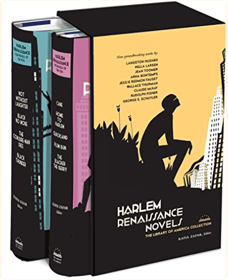
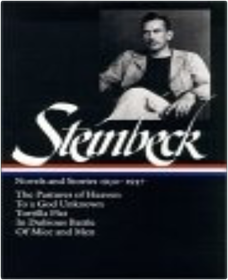
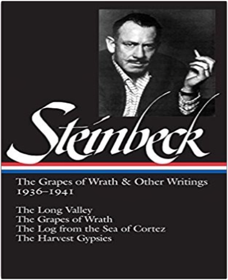
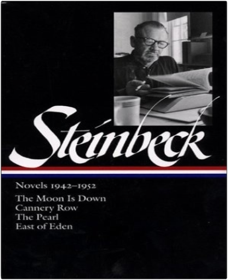
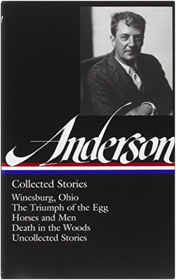
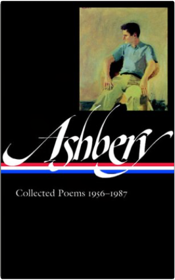
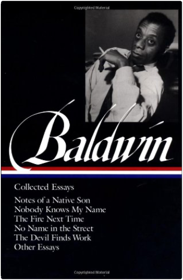
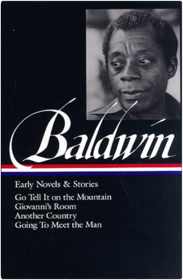
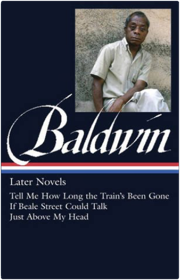
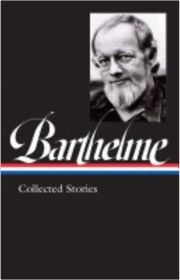
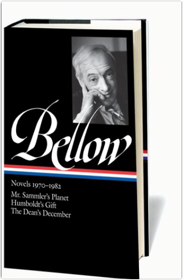
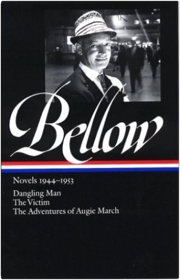
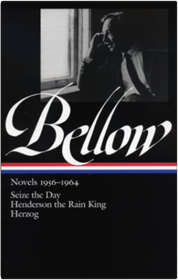
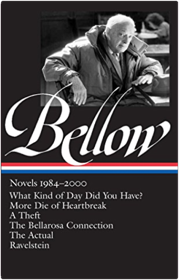
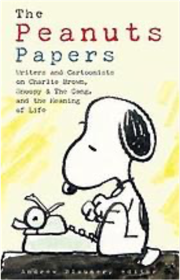
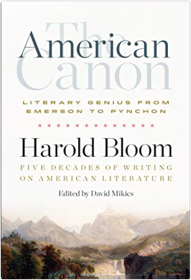
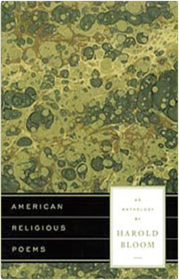
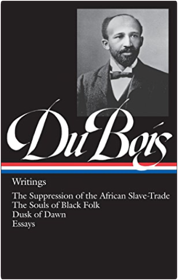
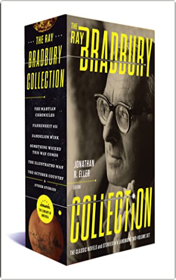
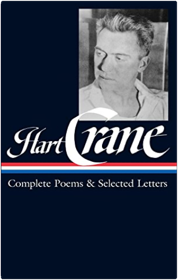
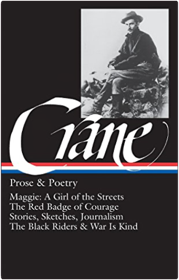
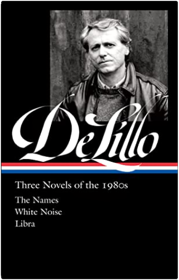
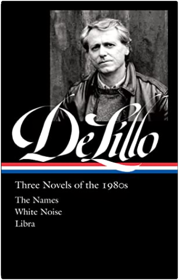
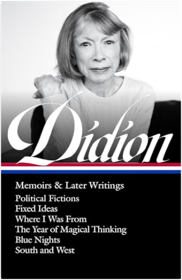
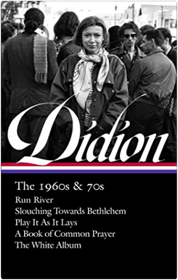
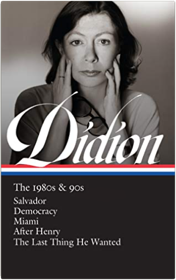
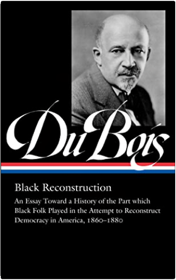
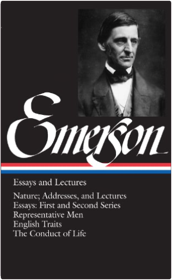
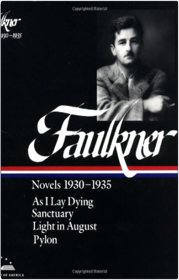
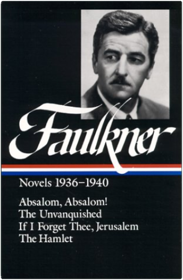
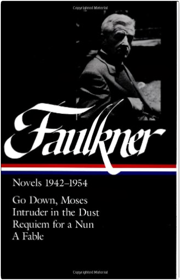
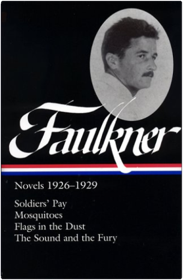
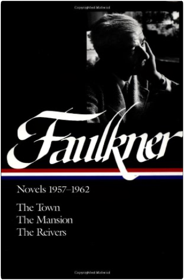
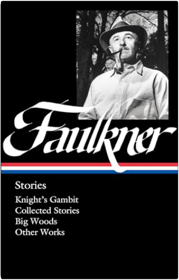
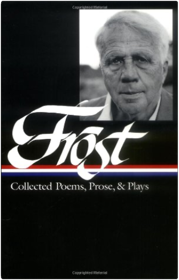
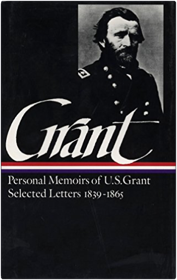
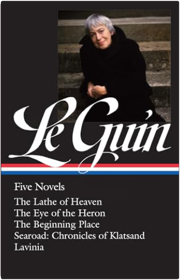
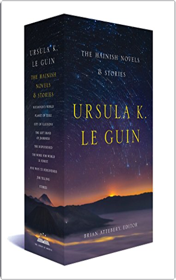
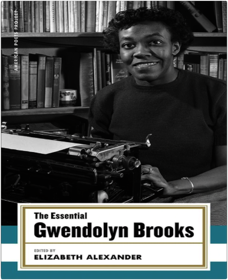
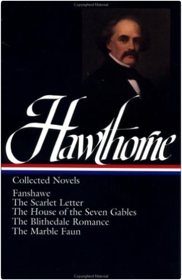
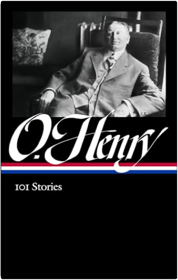
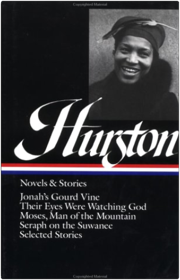
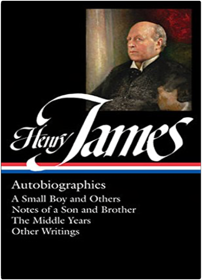
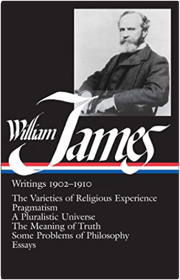
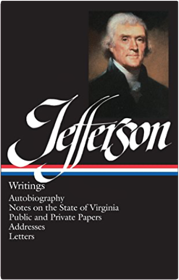
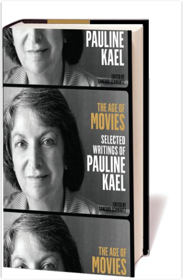
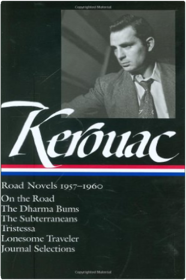
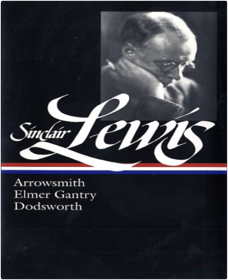
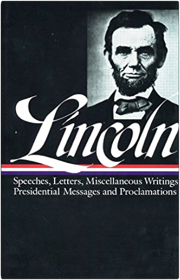
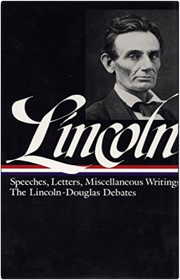
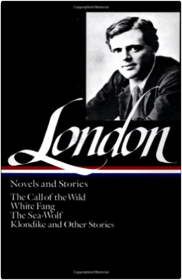
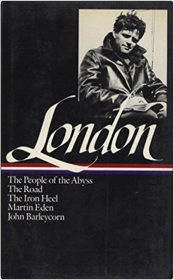
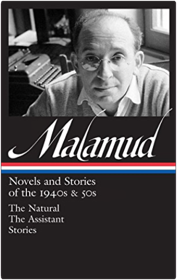
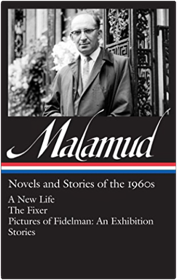
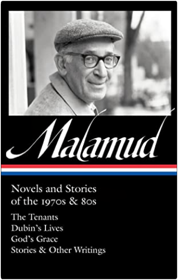
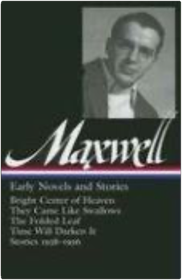
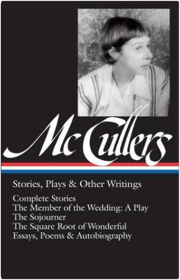
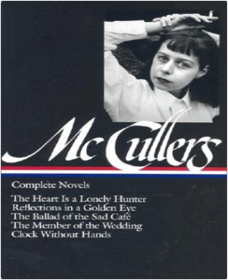
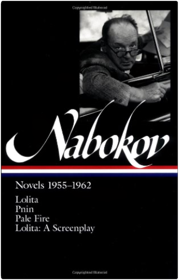
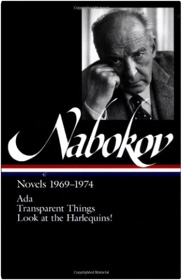
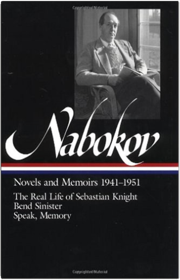
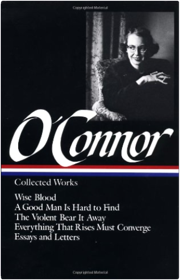
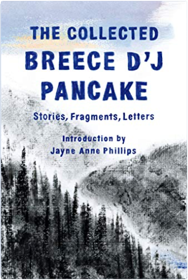
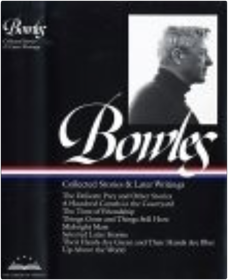
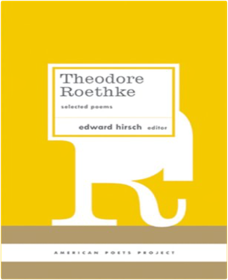
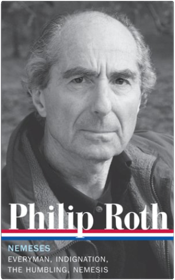
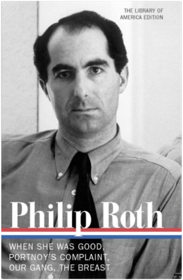
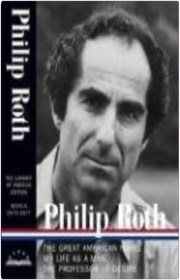
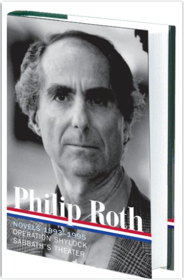
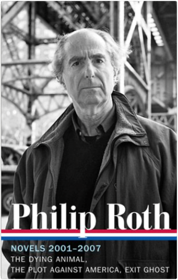
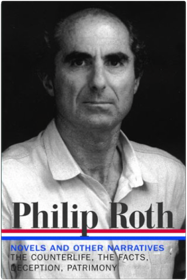
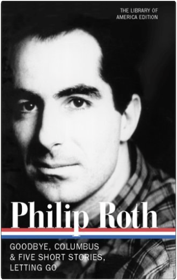
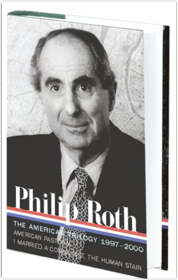
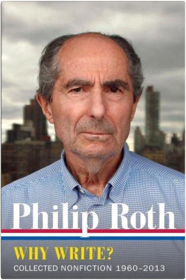
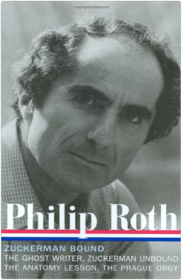
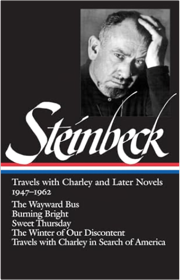

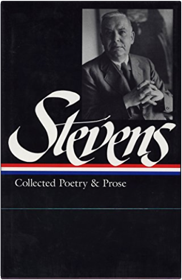
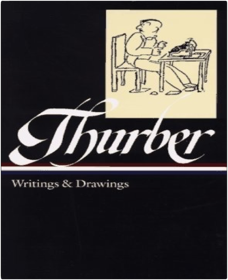
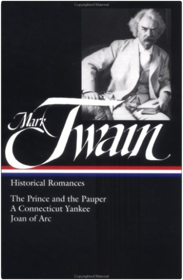
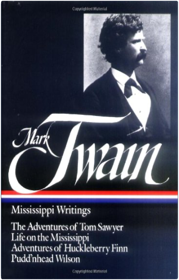
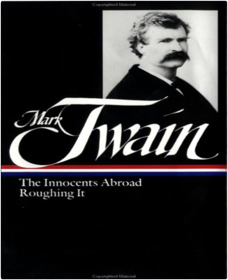
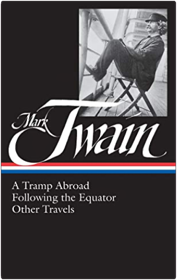
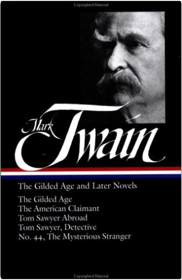
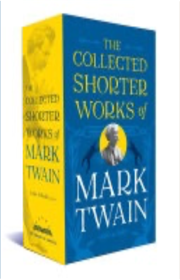
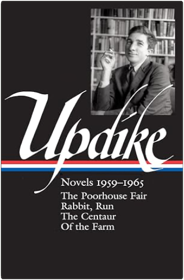
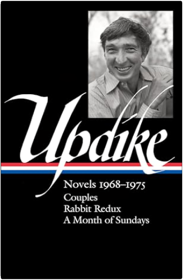
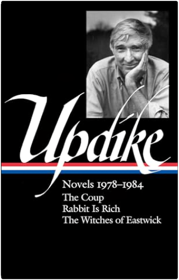
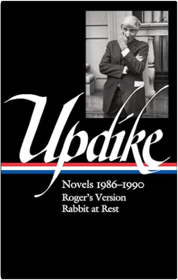
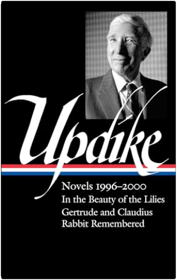
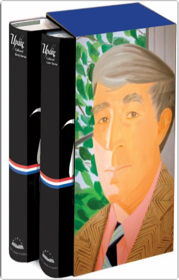
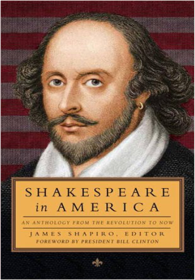
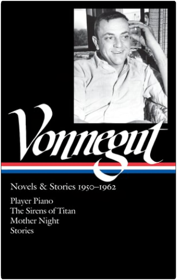
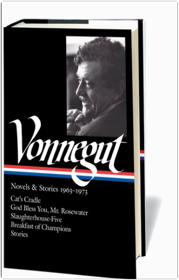
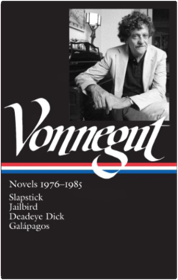
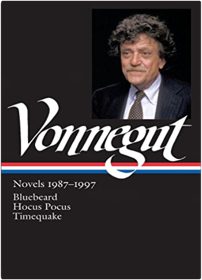
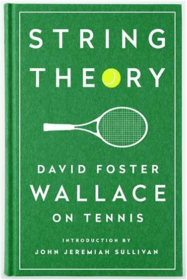
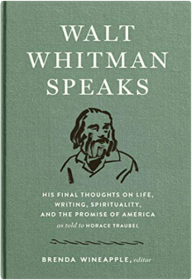
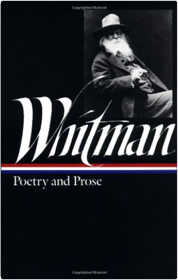
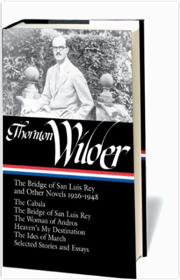
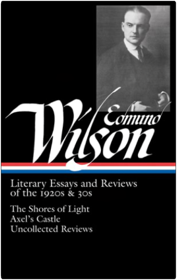
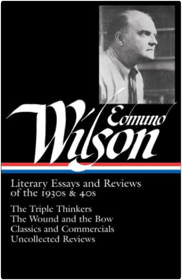
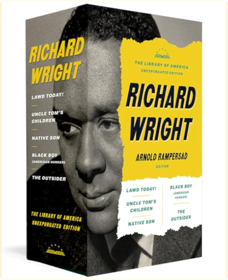


 Made with Delicious Library
Made with Delicious Library